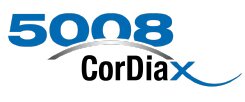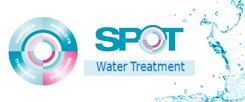Home / FlashMed
FlashMed
| Titolo | Cholecalciferol Supplementation in Hemodialysis Patients: Effects on Mineral Metabolism, Inflammation, and Cardiac Dimension Parameters |
| Autore | Patrícia Joa?o Matias,*± Cristina Jorge,*± Carina Ferreira,*± Marília Borges,§ Ine?s Aires,*± Tiago Amaral,*± Ce´lia Gil,*± Jose´ Cortez,§ and Aníbal Ferreira*± *Hemodial-Dialysis Unit, Vila Franca de Xira, Portugal; Dialverca-Dialysis Unit, Forte da Casa, Portugal; ±Nu´cleo de Investigac¸a?o na A´rea Nefrolo´gica, Lisboa, Portugal; §Laborato´rio Dr. Fernando Teixeira, Lisboa, Portugal; and Faculdade de Cie?ncias Me´dicas da Universidade Nova de Lisboa, Lisboa, Portugal |
| Referenza | Clin J Am Soc Nephrol; 2010. doi: 10.2215/CJN.06510909 |
| Contenuto | Background and objectives: Vitamin D deficiency is highly prevalent in chronic kidney disease. The aim of this study was to evaluate the effects of oral cholecalciferol supplementation on mineral metabolism, inflammation, and cardiac dimension parameters in long-term hemodialysis (HD) patients. Design, setting, participants, & measurements: This 1-year prospective study included 158 HD patients. Serum levels of 25-hydroxyvitamin D [25(OH)D], 1,25-dihydroxyvitamin D [1,25(OH)2D], intact parathyroid hormone, and plasma brain natriuretic peptide as well as circulating bone metabolism and inflammation parameters were measured before and after supplementation. Baseline 25(OH)D and 1,25(OH)2D levels were measured twice (end of winter and of summer, respectively). Therapy with paricalcitol, sevelamer, and darbepoietin was evaluated. Results: There was an increase in serum 25(OH)D and 1,25(OH)2D levels after supplementation. Conversely, serum calcium, phosphorus, and intact parathyroid hormone were decreased. There was a reduction in the dosage and in the number of patients who were treated with paricalcitol and sevelamer. Darbepoietin use was also reduced, with no modification of hemoglobin values. Serum albumin increased and C-reactive protein decreased during the study. Brain natriuretic peptide levels and left ventricular mass index were significantly reduced at the end of the supplementation. Conclusions: Oral cholecalciferol supplementation in HD patients seems to be an easy and cost-effective therapeutic measure. It allows reduction of vitamin D deficiency, better control of mineral metabolism with less use of active vitamin D, attenuation of inflammation, reduced dosing of erythropoiesis-stimulating agents, and possibly improvement of cardiac dysfunction. |
| Data | 29.04.2010 |
| Lista completa |
|







